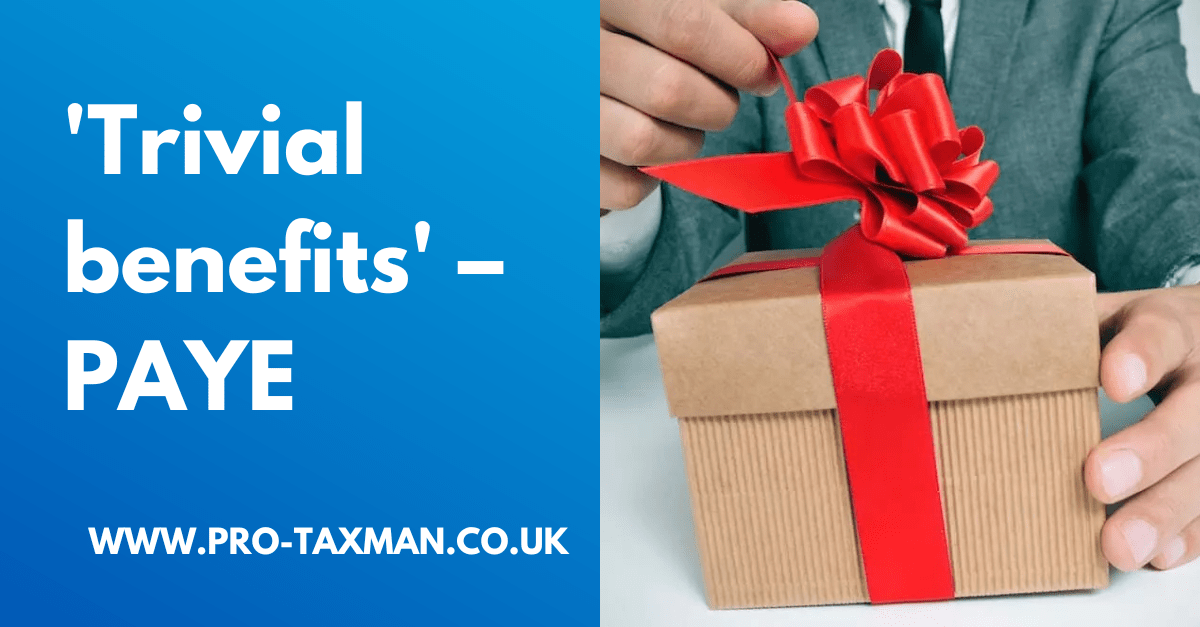Legislation surrounding ‘Trivial Benefits’ was introduced to save employers from having to report relatively small amounts given to employees as taxable on a form P11D.
Under the rules there are no tax or NIC consequences for the employee receiving the benefit of the gift:
- costs less than £50 (HMRC consider this amount to be the VAT inclusive amount)
- is not a cash or a voucher convertible into cash (a gift voucher is allowed)
- is not a reward for the employee doing their job. However should that employee undertake duties outside of their employment, e.g. staying after work voluntarily to serve drinks and snacks at a board meeting and receiving a bunch of flowers as a ‘thank you’, then the exemption will apply.
- not be part of a salary sacrifice arrangement where an employee gives up part of their future pay in exchange for any benefit, however small the amount.
The exemption can apply to as many times a year as required however, if there is a specific exemption for a benefit then that takes precedence over the trivial benefits exemption e.g. the exemption for the cost of a firm’s Christmas party.
As an anti-avoidance measure there is an additional monetary cap provided to directors and their families. The total cost to the company must not exceed £300 per tax year, e.g. six benefits of up to £50 each or any other combination so that the individual cost is less than £50 and the annual cost less than £300.
At first reading the conditions are relatively straightforward but look deeper and there are some situations where an employer may unwittingly fall foul of the rules. For example, HMRC has confirmed that while providing a gift card of £10 would initially fall within the exempt rules, topping up the same card with £10 more than four more times in the tax year will take the total of the benefit over the £50 limit. In this situation, the whole series of gifts will be considered a single benefit that fails to meet the trivial benefit conditions so both the original gift and the top-ups will be taxable.
One way to circumvent the £50 rule is to lend the item to the employee rather than gift. A typical example of this is when an employer provides a work outfit. If the clothing counts as protective or uniform, there are no tax or NIC implications anyway. However, where this is not the case consideration should be made to either provide each clothing item as a separate gift or lending the item to the employee. The benefit in kind for lending the item will be 20% of the item’s value when first provided to the employee, plus any maintenance costs, e.g. dry cleaning, per year. As long as these amounts total less than £50 the trivial exemption can apply.
Need professional accounting service or accounting advice? Contact us to book a 15-min Free Consultation with us today.
To find out more please follow us on Facebook, Twitter, or LinkedIn. Feel free to contact us on 0333 006 4847 or request a call back by texting 075 6464 7474

